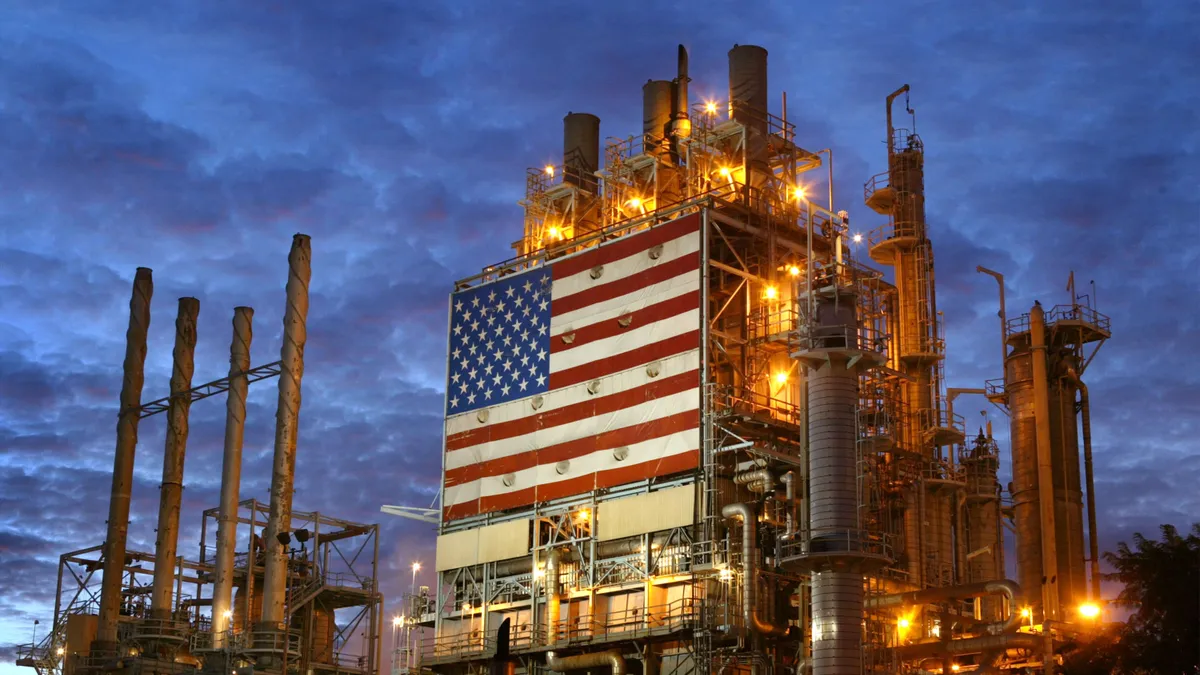Dive Brief:
- The Shell board of directors faces a shareholder lawsuit by ClientEarth, an environmental law firm, claiming that directors have undermined the oil giant’s interests by failing to implement a strategy to cut carbon emissions in line with the Paris Agreement of 2015.
- “Shell is seriously exposed to the risks of climate change, yet its climate plan is fundamentally flawed,” according to Paul Benson, a ClientEarth attorney. “In failing to properly prepare the company for the net-zero transition, Shell’s board is increasing the company’s vulnerability to climate risk, putting the long-term value of the company in jeopardy.”
- ClientEarth claims that directors breached their duties under the U.K. Companies Act and failed to promote Shell’s success by not advancing a plan aligned with the Paris Agreement to limit the global rise in temperature to below 1.5 degrees Celsius by 2050. Shell did not respond to a request for comment.
Dive Insight:
U.S. regulators and lawmakers are pushing CFOs and their boards to provide detailed disclosures on carbon emissions, reinforcing efforts by shareholder activists to nudge companies into implementing strategies to combat climate change.
“Stakeholders are literally pulling every lever possible to address climate risk,” according to Matthew Dobbins, a partner at Vinson & Elkins.
The Securities and Exchange Commission (SEC) plans Monday to release proposed rules for corporate carbon emissions disclosure for a public comment period.
SEC commissioners “believe climate risks are fundamentally material to investors, regardless of the cost they may have for the company,” Dobbins said. “That’s why I think you’re going to see pushes for some data to be disclosed.”
The SEC may require companies to provide so-called Scope 3 disclosures across their supply chain, detailing the carbon emissions by vendors, suppliers and other third parties, SEC Chair Gary Gensler said in speeches and congressional testimony last year.
Carbon emissions from a company’s facilities are deemed Scope 1, while indirect emissions for the generation of a company’s purchased electricity, heating and cooling are considered Scope 2.
The agency — recognizing the challenges in gathering credible data — may require Scope 3 disclosures from just the largest companies in some industries, and may allow a “grace period” phase-in of the reports, Dobbins said in an interview.
SEC rules for carbon emissions disclosure will build on existing standards such as the Task Force on Climate-Related Financial Disclosure and the Greenhouse Gas Protocol, SEC Commissioner Allison Herren Lee said this month.
Standardized disclosure “is key to comparability, is key to understanding transition risk,” or the cost of reducing reliance on fossil fuels, she said.
The SEC will combat so-called greenwashing and enforce disclosure standards on environmental, social and governance (ESG) reports as vigorously as it upholds rules for other corporate reporting, she said.
“Companies are just churning out hundreds of pages of disclosure related to ESG right now,” Lee said in a webcast. “If we don’t have something there set up to ensure that it is, you know, sort of operating at its best capacity, then we are falling down on the job.”
Agency commissioners are “going to walk a fine line between, ‘You must disclose information on these pieces’ versus ‘You must take action in this way,’” Dobbins said. If the SEC is too prescriptive, “they get out on much thinner ice and expose themselves to litigation risks — and we all know this rule is going to be challenged.”
The lawsuit brought against Shell underscores that directors and executives need to fully inform themselves about climate risks and how their companies can curb climate change, he said.
The litigation “definitely signals that the board is now being increasingly targeted to proactively address climate,” Dobbins said. “You’re going to increasingly see attempts to make sure that a board has the right people who are knowledgeable on climate risks.”












